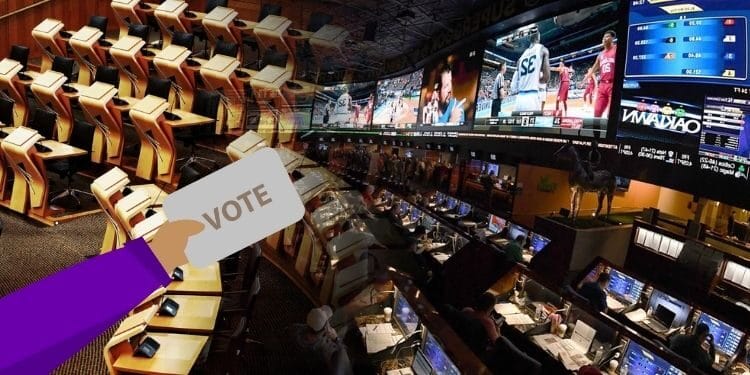The bill to legalize betting and tax sports in North Carolina got a pass in its first Senate committee on Wednesday, with proponents prevailing against social conservatives who believe it will lead to more gambling addictions.
According to the bill’s primary backer, Republican Sen. Jim Perry of Lenoir County, many residents are already gambling on sports from their computers or smartphones through out-of-state sites for betting or through traditional bookmakers. Perry told the Senate Finance Committee that regulating these activities makes sense to encourage openness and produce cash for areas like education.
Those who wish to wager on sports may do so now. It is not something that the state can regulate and tax. Perry says he does not want to bury his head in the sand about it but does not want to dismiss anyone concerned.
According to the National Conference of State Legislatures, sports betting is legal in 20 states and the Columbia District. Earlier this year, the Eastern Band of Cherokee Indians launched an onsite operation for sports betting at two casinos in far western North Carolina. Following a 2019 Supreme Court ruling that paved the path for every state to allow sports betting, there has been a surge in interest throughout the country.
North Carolina Education Lottery will get directives from Bipartisan legislation to issue 10 to 12 licenses for interactive sports betting. License applicants will undergo a criminal background check. Sports bettors can bet on professional sports and college sports based on the final score.
The operators are allowed to set in-person locations for betting within the professional sports arena, including Spectrum Center located in Charlotte. The state will also collect license fees of around $50,000 and 8% tax from the gross revenues.
Most of the proceeds will be used for the special fund that will attract sporting events in the state. According to the estimation by the legislature’s fiscal staff, the annual total amount could range from $8 million to $24 million if one bill version became law.
Even though North Carolina was the last state located on the East Coast to legalize the state-run lottery, legislators are still in opposition to gambling.
On Wednesday, some people raised a question regarding financial benefits and should the collected money be dedicated to the public’s education in-state.






